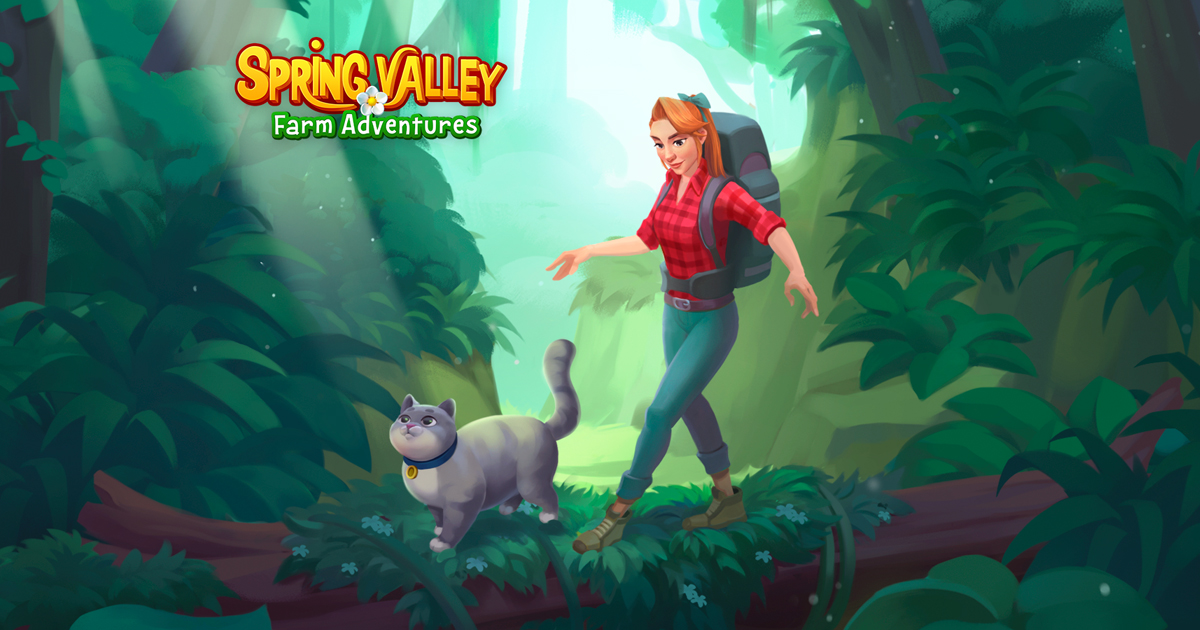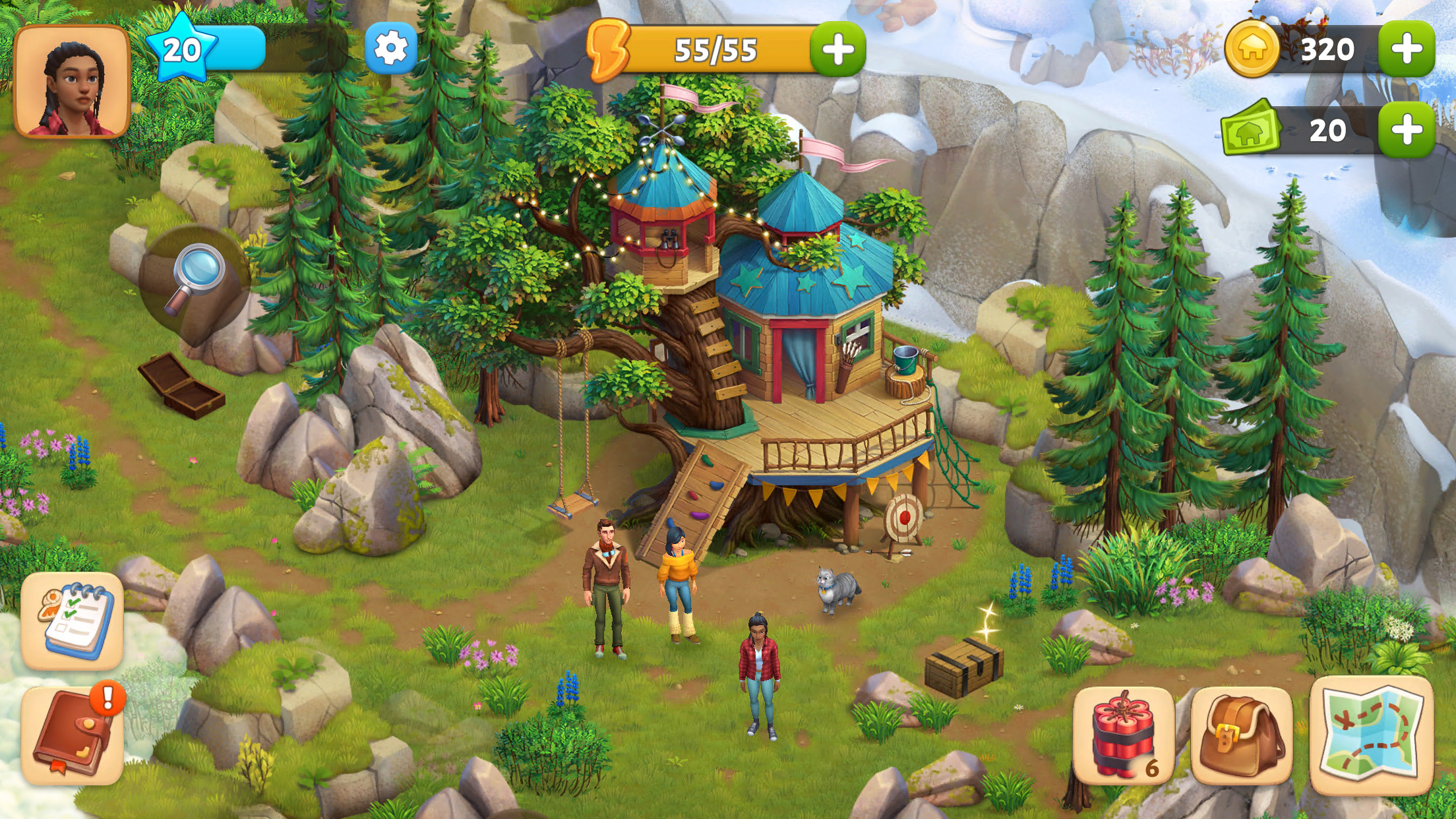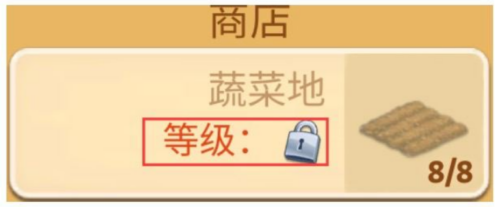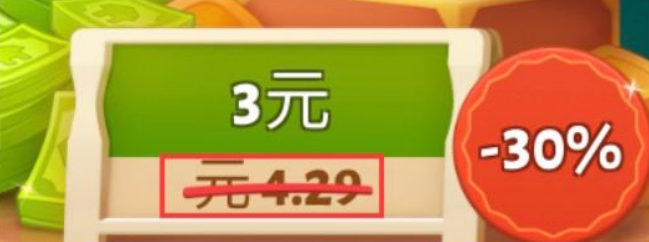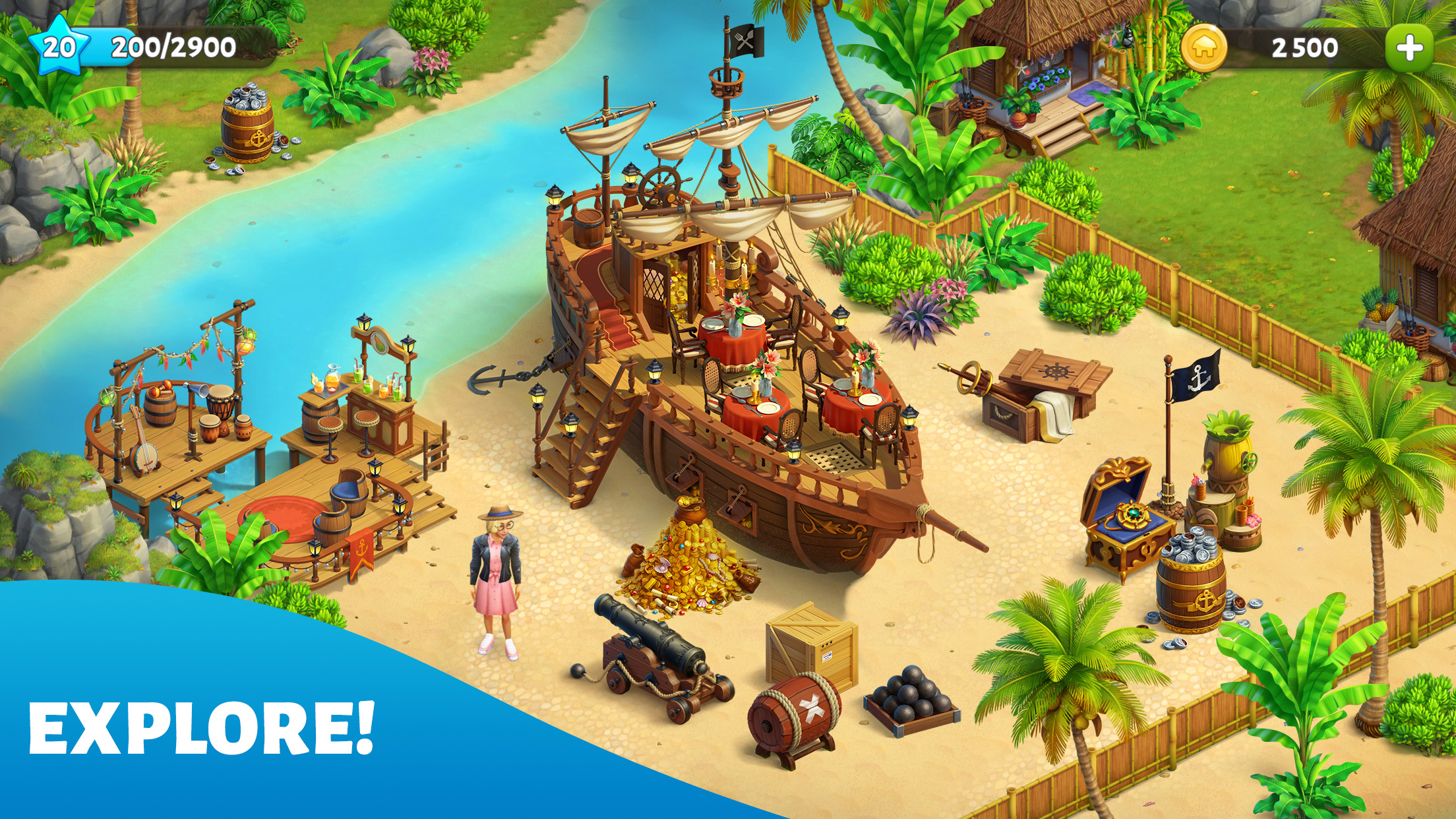At the end of March, it became known that Playkot received a license to release its Spring Valley game in China. About how much money was spent on paperwork, how long it took to wait for the review, what edits needed to be made to the build and much more — in our interview with Evgenia Artemova, bizdev manager of the company.
Evgenia Artemova
Alexander Semenov, Editor-in-Chief of App2Top: Zhenya, hello! I know that it took you a year to prepare the papers for obtaining an ISBN. Why so many?
Evgenia Artemova, bizdev-manager of Playkot: Sasha, hello! The fact is that the preparation of the application is a whole separate project that affects:
- the product team (it prepares the APK according to the list of requirements);
- technical team (responsible for server setup in China);
- the legal team (on it — registration of the name of the game, copyrights, trade marks);
- bizdev’s team (coordinates actions with the Chinese partner, is also responsible for clarifying requirements and signing documents).
The main difficulty is that no separate team is allocated for this project.
In our case, the Chinese application was handled by the same people who created the game itself. That is, at the beginning of 2020, the team was preparing Spring Valley for the softlonch, and simultaneously engaged in the application.
How many people eventually took part in the process?
Evgenia: During the year, the procedure probably affected 20-25 people.
That’s a lot. Is it possible to say that a company that wants to publish in China, in fact, should have a separate department dealing only with this?
Evgenia: Ideally, it would be very cool to have a separate team that does this, but the reality is that applying for an ISBN is such a risky and long-term project without guarantees that few people decide to start a separate team (I don’t know such examples at all).
Now let’s talk a little about money. Can you share what budget should be put on the paperwork for obtaining a license?
Evgenia: We didn’t set up some kind of result, it’s difficult to calculate all the expenses. Oddly enough, separate fees for the publisher and for the registration of papers are relatively small money.
I honestly don’t remember the amount right now, but it seems that these fees, registrations and servers took up to $20-25 thousand on a one-time basis plus small monthly infrastructure costs (it should work so that reviewers could come in and see the project at any time).
The most expensive thing is the labor costs of colleagues who could spend the same time on product development (so that the world release takes place faster). This is a big expense item that makes the licensing project expensive.
The global launch of Spring Valley took place in the spring of 2022. You submitted the papers much in advance — in March 2021. Do I understand correctly that it is possible to apply for an ISBN without a finished product?
Evgenia: We really submitted a lot in advance, we wanted a long time to pass between the global launch and the potential release in China.
However, the statement that the finished product is not needed is incorrect.
For example, in our case, at the time of March 2021, we already had a completely playable product with content. It’s just that the amount of content in it, of course, was much less than at the time of going global. Well, there was no such variety of mechanics as there is now.
At that moment, our APK, which we sent for review, looked like a full-fledged game, which does not have a lot of content yet (there were about 7-10 days of play).
What was the first stage of submission and how quickly was it completed?
Evgenia: The first stage is the submission of an application to the provincial bureau. His task is to check the set of documents on the list, check the registration of the name of the game and make sure that the APK we made is playable.
The build itself is not checked by the provincial bureau according to the requirements. This is already the work of the next instance — the Central Bureau. We passed the provincial bureau in about a month.
And what did the work with the Central Bureau look like?
Evgenia: In fact, when the game gets to the Central Bureau, our task is to wait for feedback and promptly make edits.
There were several such iterations. It looks like this:
- the bureau submits a document with a request for edits;
- our publisher translates it into English;
- I explain it to the team;
- the team takes to work.
Each iteration of the feedback has a deadline when the APK with edits needs to be returned. The timing is not very comfortable for a team that is working full-time on preparing the game for the world launch, but it is real (several weeks).
What edits were you asked to make to the game? Was there something very unusual?
Evgenia: The wildest stories we have are connected with Age of Magic, when we went through a similar process with her.
As for Spring Valley, using its example, we saw that with casual games it is much more comfortable to be reviewed by the Chinese.
The edits mainly concerned the requirements for time limits and purchases for minors (they tightened at some point and it turned out that we submitted the build with some limits, they changed dramatically, and we were immediately asked to change them in accordance with the new requirements), there were several edits on localization and filters of unacceptable words.
From the examples (important: this is 1/1000 of what we had to change):
1) Next to the locked content, it should always be clearly written at what level it will be unlocked.
2) All texts should be aligned to the left, not to the right.
3) The yuan badge must necessarily stand after the price, not before.
Since the verification process is stretched over years, the requirements sometimes change at the moment when your game is already with the reviewers.
As soon as you read the news about the changes, you make a groan and think, well, that’s it, we are waiting for a request for edits.
You just mentioned the time limit for minors. I thought that this should be handled by the publisher or some separate service with a special SDK.
Eugenia: Since you give the APK to the reviewers, there is nothing embedded in it, no SDK. And we do all these mechanisms for the application on our side.
Can you tell me a little bit about how the time limit system works in general?
Evgenia: The login system is embedded in the game with the verification of each player’s passport. When trying to create an account for a passport number, a request is made to a special database, and it returns an answer, whether the passport is real, and how old the player is. Depending on this, certain rules begin to apply for the player according to the time spent in the game and the amount of money that can be spent there.
In real life, publishers really have their own SDKs in which all this is implemented. And on release in China, this is already much easier.
And if we talk about the content of the game, then in the end, how much did we have to adapt the game to the Chinese market? How significantly does the Western release differ from the future Chinese release? I’m not just asking, we’ve been curiously studying screenshots of Merge Mansion for the Middle Kingdom with the whole editorial staff. They bear little resemblance to the game that we all know well.
Evgenia: Well, by the way, here again it depends on the niche and genre.
For Age of Magic, during the review process, we did a very heavy, large and even toxic work several times on repainting textures, removing skulls, “dressing” characters, and so on.
Against this background, it was much easier with an idyllic farm and kind characters. I’m not saying in any case that there wasn’t enough work, but Chinese reviewers really have fewer questions about casual stylistics, where there are no battles, deaths and blood.
Therefore, at the release in China, we still expect that the game content will differ little from the world version.
Do I understand correctly that after you made all the necessary edits, they fell silent on the other side?
Evgenia: Yes, that’s right. After several iterations, which we did on time, they fell silent there.
How long has the Central Committee been silent?
Evgenia: They were silent for a long time – from about the second half of 2021, when the freeze on issuing licenses to foreign companies began.
Did you understand that this is normal, that this is how it should be? Or were there thoughts that the game would not get a license in the end?
Evgenia: Everyone understands that applying for an ISBN is, in general, such a lottery with the opportunity to grab the jackpot. Therefore, we decided that for our part we will do everything to make everything work out, and then we will hope for success.
The team tried very hard to move quickly and fulfill all the requirements as accurately as possible.
We sincerely believe that those who make great efforts to make something happen, and do not give up, are lucky.
What are your next steps now?
Evgenia: Right now we need to evaluate two things: the amount of work and costs with this project (this is equal to launching a separate game) and the potential income that we can get from this launch. This will allow us to realistically plan the timing and expectations of the launch in China.
So, wait, where did the volume of new work come from, was the game approved for launch? What is it about?
Evgenia: The game was submitted in 2021, when there were 7-10 days of play, now there are more than two years of our work and new content that needs to be added to the Chinese build, localization should be done, support and KM should be established, as well as financial and legal issues should be resolved and the server infrastructure updated. Plus, we still need to understand who will deal with China from our side, whether the current team will be able to take over this, or whether we need to create a separate one for operating in China.
In general, a lot of questions.
By the way, a local publisher is needed for a regional release. Who do you work with?
Evgenia: In our case, this is MyGamez. This is the second ISBN that we receive with their help, and we trust them as a partner.
Listen, is a Chinese publisher, as a rule, a conditional person who simply allows you to work in the local market, or is there something else?
Evgenia: A good Chinese publisher is a full–fledged partner and a guide to a complex market, which closes a large number of issues in which we have little expertise – it concerns finance, legal aspects, the choice of platforms, relations with channels.
A considerable part of the work, of course, will be done inside our studio, because it is important for us to develop expertise in China.
Time will tell exactly what kind of division of responsibility we will have for Spring Valley.
Two years ago, together with Versus.legal, you prepared a material for us about the release of games in China. How much has the work with the Chinese market changed since that time?
Eugenia: This is what we ourselves have to find out now. For the last year and a half, we have been in passive expectation and have been more focused on bringing Spring Valley to a successful worldwide release and scaling the game.
And the last question: Spring Valley is a casual game in the expedition genre. When you made the decision to enter the Chinese market with it, you probably estimated the popularity of the niche and genre in the local market. Actually, the question is: what about this niche in the country, what results do you expect from the game here?
Evgenia: There is a stereotype that only midcore and hardcore games are waiting for success in China. In fact, there are a huge number of female gamers there, and they have a request for high-quality casual games with atmospheric graphics, fascinating narrative and interesting mechanics.
Two games from the list of our most successful competitors – Family Farm Adventures and Dragonscapes – are made by the Chinese company Century Games. Dragonscapes was launched in China about six months ago and is rapidly gaining momentum. Most of our Western competitors are not there yet. This is a very good opportunity for us to bring a high-quality game to a large market.
I see. Well, good luck! And thanks for the interview!

